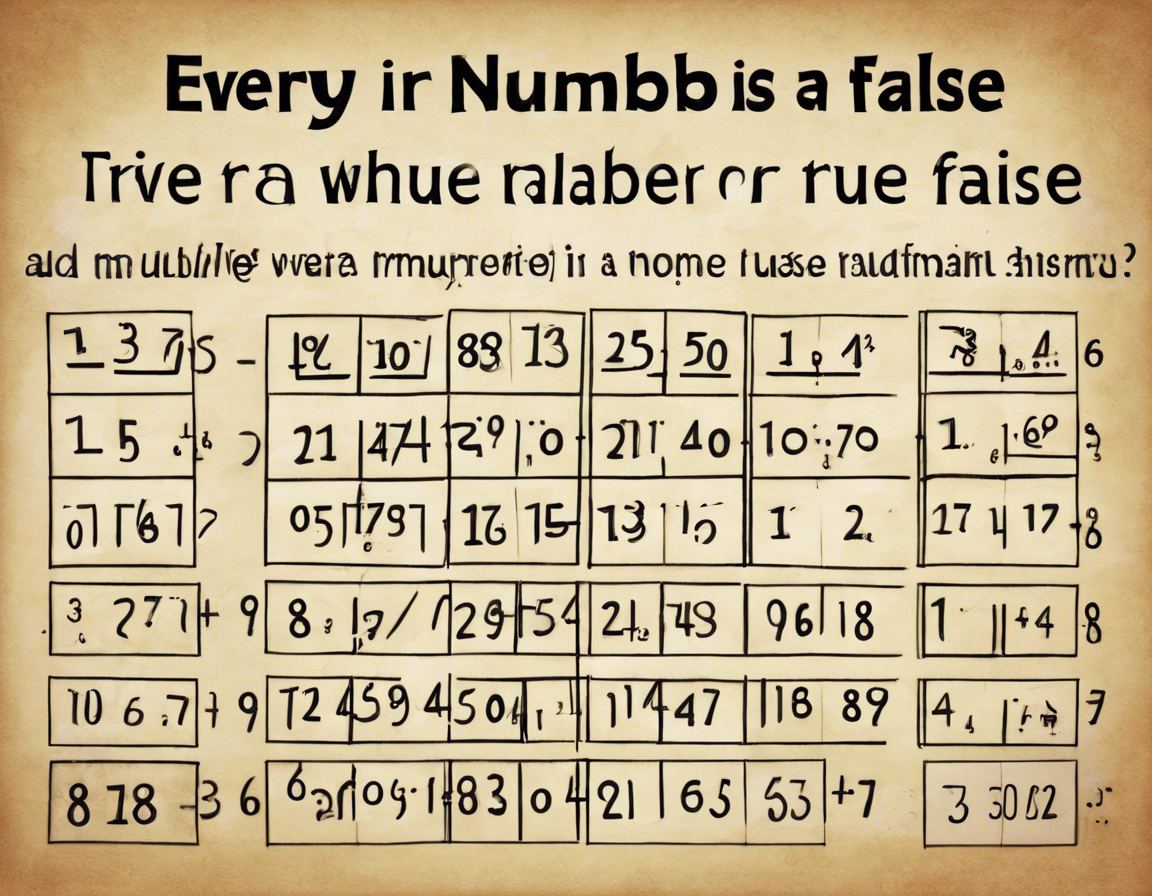Whole numbers and natural numbers are related concepts in mathematics, and their definitions often overlap. To understand the relationship between the two, it is essential to first grasp their individual meanings.
Natural Numbers
Natural numbers are a set of numbers that are used for counting and ordering items. They start from 1 and go on infinitely: 1, 2, 3, 4, 5, …. Natural numbers are also called counting numbers.
Whole Numbers
Whole numbers include all the natural numbers along with the number 0. Therefore, the set of whole numbers is: 0, 1, 2, 3, 4, 5, …. Whole numbers represent all the positive integers including zero.
Relationship Between Whole Numbers and Natural Numbers
Given that natural numbers start at 1 and whole numbers include 0 along with the natural numbers, it is evident that whole numbers are a superset of natural numbers. In simpler terms, every natural number is a whole number, but not every whole number is a natural number.
Properties of Whole Numbers
To better understand the concept of whole numbers, let’s dive into some of their properties:
Closure
- Whole numbers are closed under addition and multiplication, meaning that if you add or multiply two whole numbers, the result will always be a whole number.
Commutative Property
- The commutative property of addition and multiplication holds for whole numbers. That is, switching the order of the numbers being added or multiplied does not change the result.
Associative Property
- Whole numbers also obey the associative property of addition and multiplication. This property states that when adding or multiplying three or more whole numbers, the grouping of the numbers does not affect the result.
Identity Elements
- In the set of whole numbers, 0 is the identity element for addition, and 1 is the identity element for multiplication.
Adding and Subtracting Whole Numbers
When adding or subtracting whole numbers, the basic rules of addition and subtraction apply. Here are some examples to illustrate:
Addition
- 2 + 3 = 5
- 7 + 0 = 7
- 9 + 1 = 10
Subtraction
- 8 – 4 = 4
- 5 – 0 = 5
- 10 – 2 = 8
Multiplying and Dividing Whole Numbers
Similarly, the rules of multiplication and division are used with whole numbers. Let’s look at some examples:
Multiplication
- 4 x 3 = 12
- 7 x 1 = 7
- 5 x 0 = 0
Division
- 10 ÷ 2 = 5
- 6 ÷ 1 = 6
- 9 ÷ 3 = 3
Ordering Whole Numbers
Whole numbers, like natural numbers, can be ordered from least to greatest or vice versa. When comparing whole numbers, the number 0 is the smallest whole number, followed by 1, 2, 3, and so on. Whole numbers to the right are greater than those on the left when arranged in ascending order.
Prime Numbers and Composite Numbers
- Prime Numbers: Whole numbers greater than 1 that have only two factors – 1 and the number itself – are called prime numbers. Examples include 2, 3, 5, 7, 11, etc.
- Composite Numbers: Whole numbers greater than 1 that have more than two factors are known as composite numbers. Examples include 4, 6, 8, 9, 10, etc.
FAQs about Whole Numbers and Natural Numbers:
1. Are negative numbers considered whole numbers?
No, negative numbers are not considered whole numbers. Whole numbers are 0 and all positive integers.
2. Can fractions or decimals be whole numbers?
No, fractions and decimals are not whole numbers. Whole numbers are only non-negative integers.
3. Is zero a natural number?
No, zero is not a natural number. Natural numbers start from 1 onwards, while zero is included in the set of whole numbers.
4. Can whole numbers be negative?
Whole numbers, by definition, are non-negative integers. Therefore, whole numbers cannot be negative.
5. Are whole numbers used in real-life applications?
Yes, whole numbers are used in various real-life applications such as counting objects, representing scores, indicating time, and more.
In conclusion, while whole numbers encompass all natural numbers along with the number 0, each concept has its distinct properties and uses in mathematics. Understanding the differences and similarities between whole numbers and natural numbers is fundamental for building a strong foundation in mathematics.
